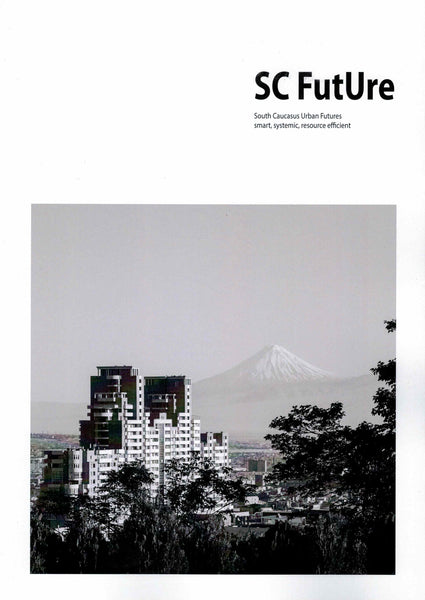
South Caucasus Urban Futures - smart, systemic, resource
TRAVELING CONFERENCE ON SMART, SYSTEMIC AND RESOURCE EFFICIENT CITIES
In an urbanizing world, cities claim a high and rising share of natural resources. They currently demand about three quarters of the global energy and are responsible for a similar amount of greenhouse gas emissions. While growing fast, cities in developing end emerging economies regularly show signs of ecological and social overload, such as unresolved waste and traffic issues or indecent living conditions.
The Traveling Conference “South Caucasus Urban Futures” aims to address these issues by applying an interdisciplinary, systemic and multi-scaled approach. With a local case study in each, Tbilisi, Georgia 09.-12.05.2019, and Yerewan, Armenia on 14.-17.05.2019, this methodology was designed to connect architects, engineers, planners, social and cultural sciences towards a more integrated understanding of locality, and also to collaborate with local population as well as to promote participatory approaches to local decision makers. Funded by the German Ministry of Higher Education and Research, the conference traveled with experts from three countries, namely Georgia, Armenia, and Germany to both locations, and invited additional experts and interested public to collaborate in the interactive and interdisciplinary workshop format or to discuss the results.
Working in Eliava market in Tbilisi, and in the old part of the Kond district in Yerewan, the approach first created a visual image of the place introducing the PhotoVoice method (by Wang and Burris) and adopting it to create a rapid interdisciplinary assessment. Originally designed to empower local people, the method was used here by the experts and complemented by interviews and open discussions
in local homes - a full participatory citizens’ approach was thus not intended, but is deemed necessary in a full-fledged participatory planning. By selecting and text-dubbing the most ‘speaking’ images taken in the field, the experts were nudged to create a common understanding and language of the local conditions in social, economic and social terms.



